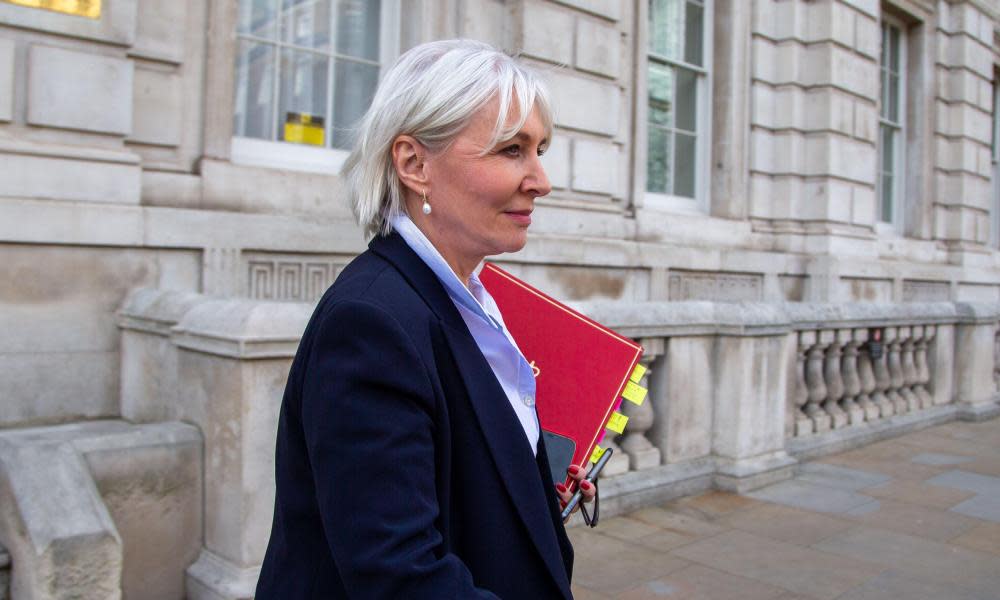Legal fears could block moves to prioritise cis women over trans athletes

The culture secretary, Nadine Dorries, has been told by numerous sporting bodies that they are nervous of legal challenges if they carry out the government’s call to prioritise female sport over trans inclusion, multiple sources have told the Guardian.
In an hour-long meeting with the chief executives of 15 national governing bodies, which included football, cricket and rugby, Dorries urged sports to “raise their game” and protect the integrity of elite and competitive women’s sport.
In what was described as a “pretty punchy” speech, Dorries stressed that competitive women’s sport must be reserved for people born of the female sex as the science showed that trans women, who have been through male puberty, maintain significant advantages.
However, she was told by a number of British sporting organisations that while they were reviewing their transgender policies, the threat of any potential legal challenges made them hesitant to conclude their reviews.
Dorries promised to take that point on board, but also made it very clear that she expected action sooner. Another meeting is expected to be held by the end of the summer.
In a statement released afterwards, the government said it had listened to the challenges that sports were facing in implementing policies on transgender participation. But it had also “encouraged sports to make progress with moving towards a position where fairness takes priority in competitive sport.”
Multiple sources also described the meeting as cordial and stressed that there was a collective willingness to progress with clearer policies in place. However, it remains unclear if the government’s references to “elite and competitive sport” also includes grassroots sports.
The Football Association, for instance, is also working on guidelines for grassroots football, which may be different from those in elite competition, which are being drawn up by Fifa and are expected to be similar to swimming’s.
Speaking after the meeting, Dorries said: “The government has the utmost compassion for people born into a body they don’t recognise. But we can’t pretend that sex doesn’t have a direct impact on a person’s athletic performance. Asking women and teenage girls to compete against someone who was biologically born a male is inherently unfair.
“I recognise that this is a complex and emotionally charged issue, so I welcome the support of our domestic governing bodies to protect and show compassion to all athletes. In the interests of sporting integrity, we must bring clarity to protect the future interests of sport around the world.”
Related: Decision time: why sport is struggling to deal with transgender row | Sean Ingle
Dorries also suggested that sports could consider launching inclusive open categories where appropriate to encourage transgender participation. “Sport is for everyone, no matter where you’ve come from in life,” she added.
She also encouraged governing bodies to engage with their international federations and encourage them to have consistent policies worldwide.
Some sports bodies, including the Rugby Football League, are understood to have discussed their role in shaping the recent International Rugby League policy. Others told the government at the meeting that their sports are actively carrying out their own scientific research to establish the impact of athletes’ sex at birth and gender reassignment on athletic performance.

 Yahoo News
Yahoo News 
